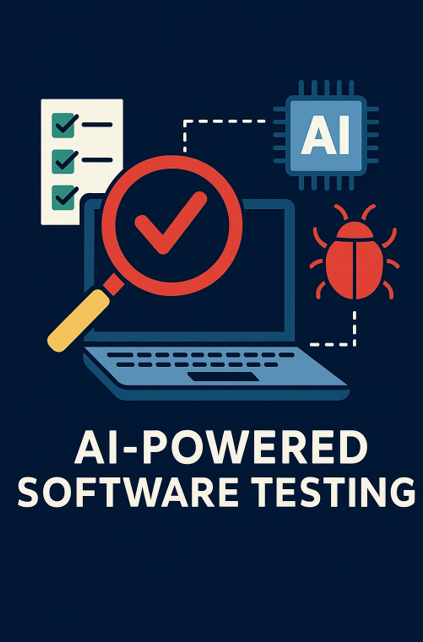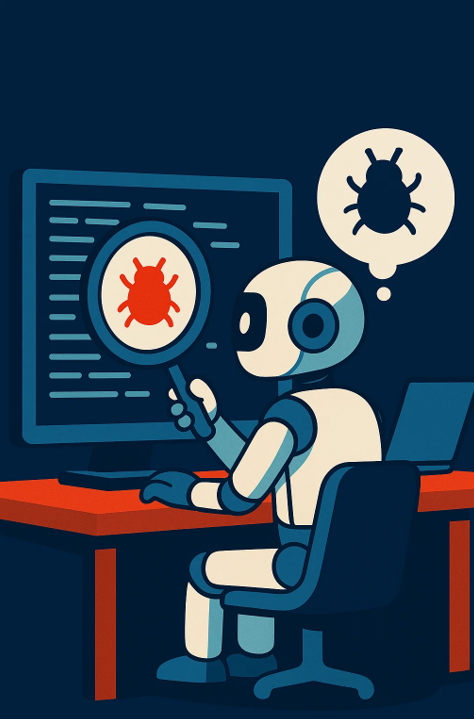In recent years, the integration of Artificial Intelligence (AI) into software testing has become a game-changer. As software systems grow in complexity, traditional testing methods struggle to keep up. Enter AI, a technology that promises to enhance the efficiency, accuracy, and speed of software testing. In this article, we'll delve into how AI is transforming the landscape of software testing and why it's becoming indispensable for modern developers.

AI brings a plethora of benefits to software testing, significantly altering how tests are conducted and managed. Here's a closer look at what AI offers:
Enhanced Test Automation
Traditionally, test automation has relied heavily on scripting and manual intervention. AI changes that by automating test case creation, maintenance, and execution. AI algorithms can learn from previous test cycles, understand patterns, and predict potential failure points, thus optimising the testing process.
Smarter Test Coverage
AI can analyse vast amounts of data to identify which parts of the software need more rigorous testing. This ensures that all critical areas are covered, reducing the risk of overlooking potential bugs. By prioritising test cases based on historical data, AI helps in focusing on high-risk areas, thereby enhancing test coverage.
Improved Bug Detection
One of the most significant advantages of using AI in software testing is its ability to detect bugs more accurately. AI tools can analyse code changes and predict the likelihood of defects, allowing developers to address issues before they escalate. This proactive approach leads to a more robust and reliable software product.

Several AI-powered testing tools have emerged, each designed to tackle specific challenges within the testing lifecycle. Here are some noteworthy mentions:
AI Test Automation Tools
AI test automation tools like Testim and Applitools use machine learning to adapt to changes in the UI, automatically updating test scripts as the software evolves. This reduces the time and effort spent on script maintenance, allowing testers to focus on more critical tasks.
AI-Based Performance Testing
Tools like Neotys and LoadNinja leverage AI to simulate user behaviour more accurately, providing insights into how the software performs under various conditions. Tools like our DisQo ai will provide role-specific AI agents to designed to streamline processes and eliminate inefficiencies across your QA operation. This helps in identifying performance bottlenecks and ensures that the software can handle real-world usage scenarios.
AI for Continuous Testing
Continuous testing is crucial in DevOps environments, where rapid releases are the norm. AI-powered tools like Functionise facilitate continuous testing by automatically generating test cases and executing them at every stage of the development cycle, ensuring quality is maintained throughout.

Despite its advantages, adopting AI in software testing does come with its challenges. Here are some common hurdles and how to overcome them:
Integrating AI with Existing Processes
Integrating AI into existing testing workflows can be daunting. It requires a cultural shift and a willingness to embrace new technologies. Training and upskilling the testing team isessential to ensure a smooth transition. Find outhow tiQtoQ can help you scale your QA operations via our roQet service
Managing Data Quality
AI systems rely on data to function effectively. Ensuring the quality of data used for training AI models is crucial. This means gathering comprehensive,accurate, and up-to-date data sets.
Addressing Ethical Concerns
As with any AI application, ethical considerations must be addressed. Ensuring transparency, accountability, and fairness in AI-driven testing is vital to building trust and confidence in the technology.
The integration of AI in software testing is still in its early stages, but the potential is immense. As AI technologies continue to evolve, we can expect evenmore sophisticated testing solutions that offer greater accuracy, efficiency, and speed. The future of software testing is undoubtedly intertwined with AI, and those who embrace this transformation will be well-positioned to lead inthe digital age.
Inconclusion, AI is revolutionising software testing by automating processes, enhancing accuracy, and providing deeper insights into software performance. As organisations continue to adopt AI-driven testing tools, the software development lifecycle will become more efficient and effective, ultimately leading to higher-quality software products.
By embracing AI innovations, businesses can stay ahead of the curve and deliver exceptional software experiences to their users. The time to integrate AI intoyour software testing strategy is now – don't get left behind in the digital revolution.